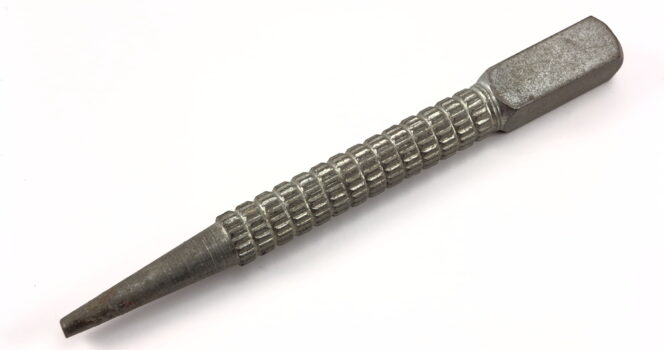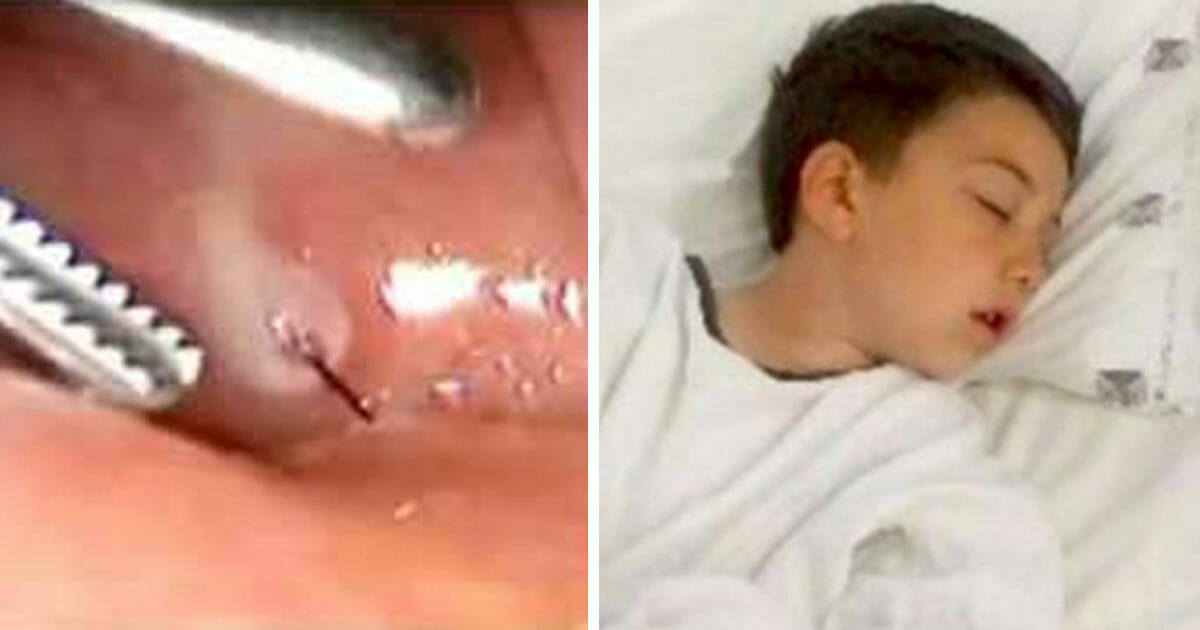
The Fiore family had a delightful summer evening, deciding to grill hamburgers for dinner.
Unfortunately, their evening took a frightening turn.
As six-year-old Anthony started eating his burger, he quickly fell seriously ill.
In a rush, Anthony’s mother took him to the emergency room, where doctors made a shocking discovery in his stomach.
She now shares a vital warning with other parents to prevent similar incidents.

“It felt like a needle,” Anthony revealed to Canadian radio station CBC.
Upon sudden illness, Anthony’s mother rushed him to the local hospital, where doctors identified that he had ingested a wire from a wire brush.
These brushes are commonly used to clean grills, found in many households with barbecues.
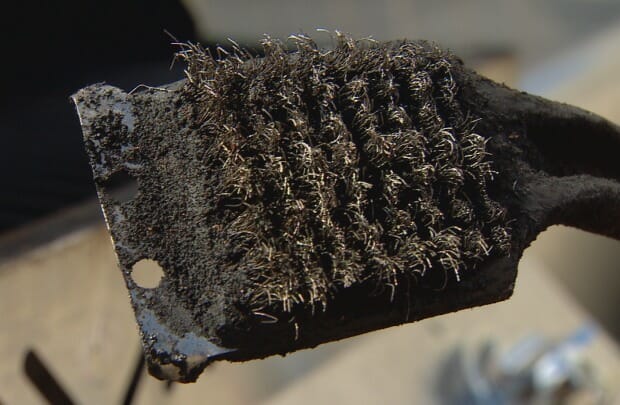
“We knew something was wrong, and he was in extreme pain because he was crying,” recalled Anthony’s mother, Nadia. “From the moment we started eating until the time he was operated on, it was about 12 hours because our journey began at the local hospital, and then we were transferred to Sick Kids.”
The wire lodged in the boy’s throat proved difficult for the initial hospital to remove.
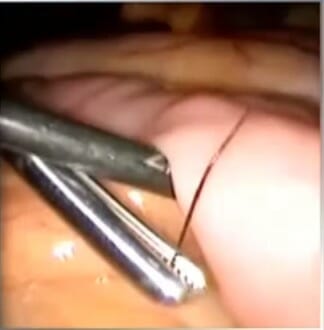
Specialists at the children’s hospital eventually managed to extract the wire through a complex procedure.
The primary concern was preventing any infections from the bacteria on the wire.
According to CBC, this wasn’t the first instance surgeons encountered this issue.
Multiple patients had required hospitalization to have wires from barbecue brushes removed from their throats.
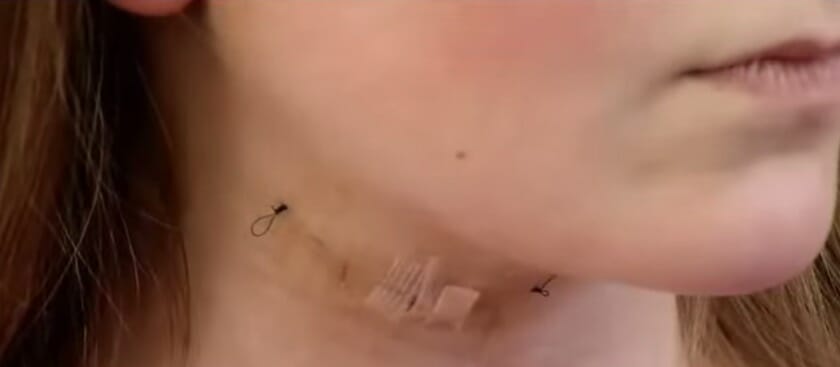
“About a year ago, I had a patient who almost died from it,” recalled Dr. Aziz Benbrahim. “He had swallowed a wire from a grill brush and was sick for two weeks.”
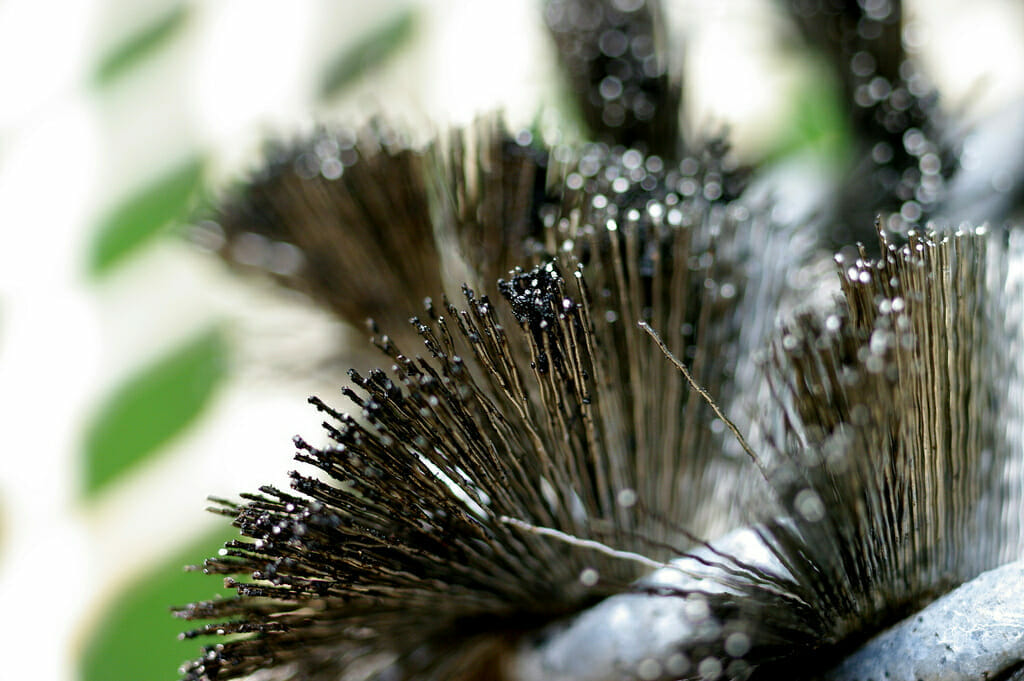
Duff Dixon from Barbecue World advises replacing brushes showing signs of wear promptly.
It’s safer to use brushes attached to a metal plate rather than wooden or plastic ones, which are generally less secure.
Dixon notes that this issue has persisted as long as metal barbecue brushes have been in use.
Ditch the metal brush – Try these alternatives instead
The most secure option is to avoid metal barbecue brushes entirely.
There are alternative methods to clean grill grates without brushes, such as letting residue burn off by heating the barbecue, or using a raw potato, onion, or aluminum foil for scrubbing.
Nadia, Anthony’s mother, hopes that by sharing her son’s experience, other families will be aware of the risks posed by barbecue brushes to prevent similar incidents.
“I hope these brushes are removed from the shelves and banned,” she emphasized.

Following the incident, the family has refrained from having barbecues, and Anthony remains apprehensive about consuming grill-cooked food.
Let’s hope Anthony overcomes his fear soon, and in the meantime, spread awareness by sharing this story to educate more individuals about this prevalent household hazard.

